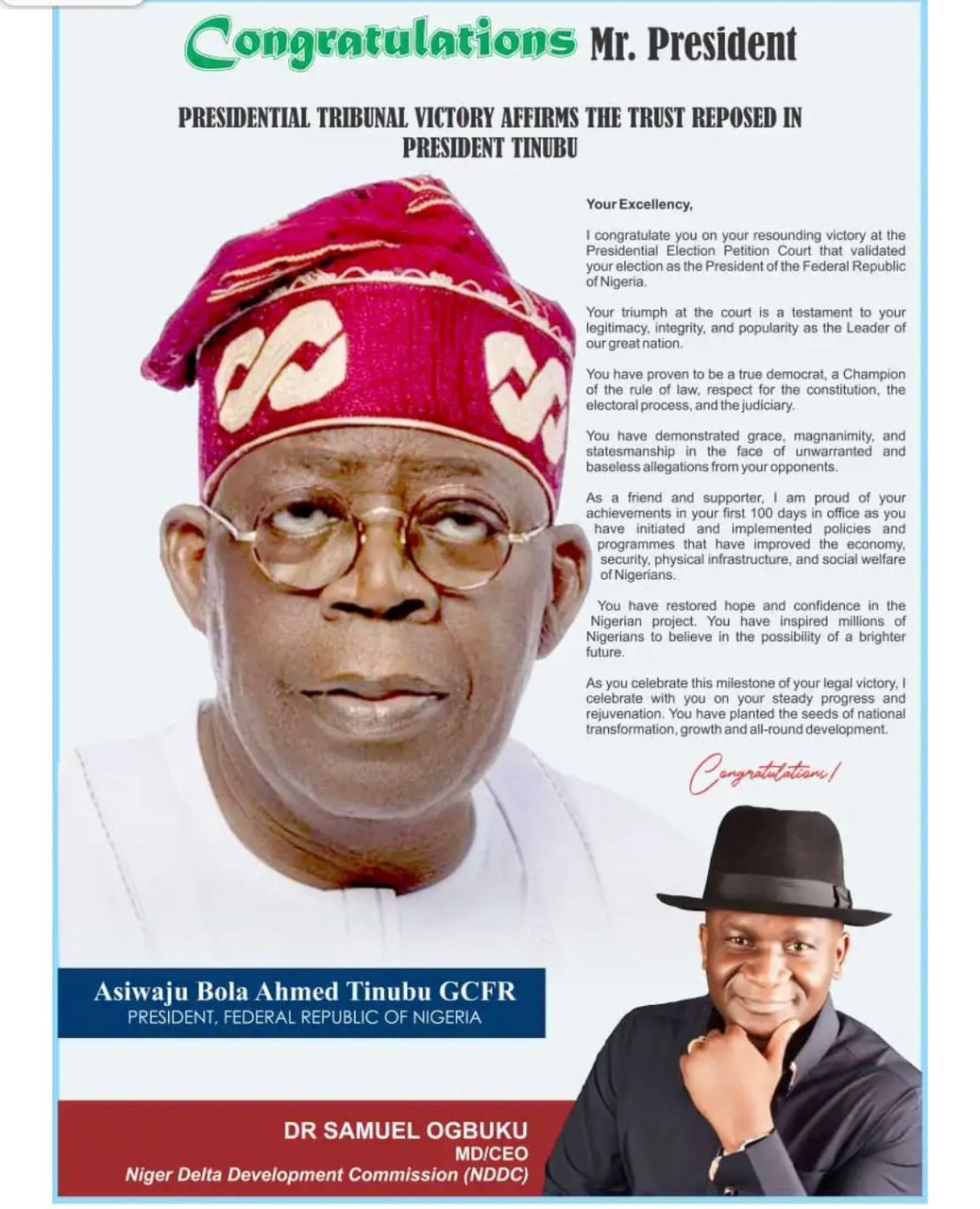Columinsts
WEEKEND DIGEST ON ANAMBRA TAX MATTERS: Focus on new Vehicle Card License System for Anambra State
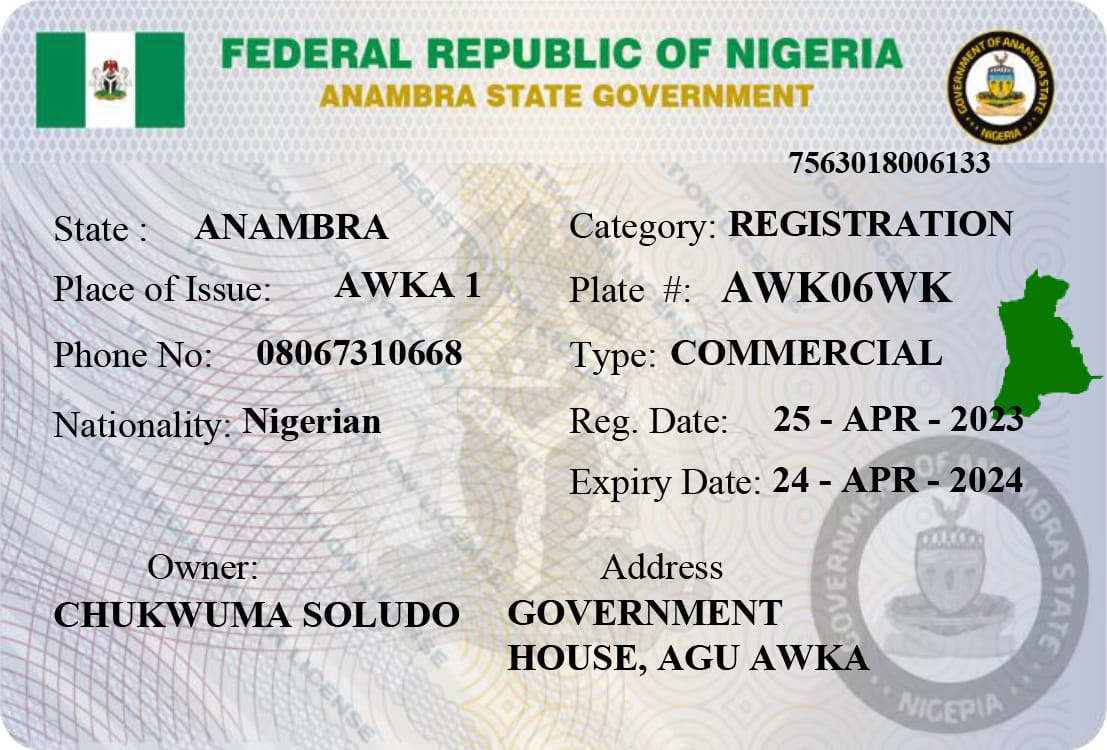






In a digital economy, there is potential to enhance productivity, increase income and improve social well-being by creating job opportunities in new markets, as well as boosting employment in some existing occupations. Key benefits of the digital economy include the expansion of business opportunities, the creation of new employment opportunities, the enhancement of public service, etc.
Two days ago, the Anambra State Internal Revenue Service (AiRS) through the State Motor Registry held a meeting with stakeholders in the Transport Sector comprising the Operation Clean and Healthy Anambra (OCHA) Brigade, Federal Road Safety Corps, Representatives of DSS, State Police Command, Civil Defense, etc. The essence of the meeting was to introduce to the Stakeholders the new Vehicle Card License System being proposed by the Anambra State Government. The meeting took place at the Training Hall of the Revenue House, Awka.
The new Vehicle Card License system will replace the former paper documents and will help the State government and the vehicle owners checkmate the activities of illegal revenue operators who issue fake vehicle documents to unsuspecting motor vehicle owners. The new Vehicle Card License will be accompanied by a sticker.
The card has unique security features such as a QR code embedded in it that brings out the particulars and information about the vehicle and the owner when scanned. The QR code will enable the easy authentication of the card as all particulars of the vehicle are contained in this unique card.
The card which is green and white is unique to Anambra State.


Back view of the proposed vehicle card license with a QR code embedded on it
Effective take-off of the new Vehicle Card License system in Anambra State is Monday, May 22, 2023.
In the case of loss, the card can be replaced if the owner reported the loss to the management. The card is free of cost.
This is a new project that will ease problems associated with the manual system of registering vehicles in Anambra State. We all should accept it, support it and benefit from it.
#AnambraTaxMatters
• Sylvia Tochukwu-Ngige is Head, Taxpayer Education, and Enlightenment Team, AiRS
Columinsts
Nigeria at 63: Collective Actions to foster Nation-Building
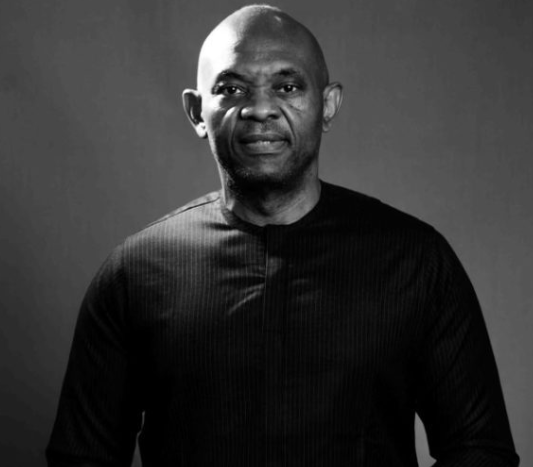






Happy independence everyone!
As we celebrate another year of independence, it is time to reflect, to look in the mirror, for our nation and ourselves.
We know Nigeria, we love Nigeria, Nigeria is one of Africa’s most diverse and dynamic countries. We are a nation that excites, beguiles, and dreams. Yet, amidst our diversity and that potential that we all feel, we have faced so many challenges. These challenges ask us to answer a fundamental question: What is our collective responsibility in nation-building?
The destiny of Nigeria lies firmly in the hands of its people – you and me. I am an optimist and I believe strongly in the potential of our nation. We must work together to create the progress we so desire through innovation, and with unity in diversity.
In August, I spoke to the Nigerian Bar Association Annual General Conference in Abuja. At the time of a new administration – and without doubt some of our toughest times economically, I spoke about our collective responsibility as Nigerians, and what we must do to foster nation-building.
My prescription, my advice, my philosophy is simple:
1. Unity.
We must set our differences aside and be united with one ambition, and one duty – nation-building. Whatever our backgrounds, geographies, religions, and experiences let us ensure that our country experiences a true renaissance.
2. Celebrate our Global Success.
We know the potential of Nigeria.
We know the resources, human and natural, that Nigeria has at her disposal. We must learn to champion the successes of Nigerians globally – in international leadership positions at the WTO, at the UN, at the African Development Bank, at the Afreximbank, in technology, in music and entertainment, in business, in arts and in media, in film, in sports.
We see these replicated at home – what we need to do is unleash our potential, create that enabling environment in Nigeria.
3. Business Excellence.
The Nigerian private sector is showing globally our capability, our ingenuity, our institutionalisation. We have global businesses with Nigerian origins. For instance – UBA, the United Bank for Africa, the only African Bank that operates in the USA, as a deposit-taking bank. We are now in Dubai, Paris, and London – and just as importantly 20 other countries in Africa. Who would have thought 20 years ago, that Nigeria would be home to Africa’s global bank!
The private sector must continue to surpass its own achievements and continue to put Nigeria on the map.
4. Shared Responsibility
Nation-building is a call to arms – a vital task – a necessity.
At its core, nation-building is the intricate process of forging a cohesive, harmonious, and united society, out of diverse individuals, cultures, and ideologies. It is the art of constructing a shared identity.
Transforming Nigeria is a journey that demands our collective dedication, building across political affiliations, ethnic differences, and socioeconomic differences.
One that is not the responsibility of our government alone. Great nations start with great people, not just great leaders.
5. A Shared Ambition Across Our Society.
Our private sector, our philanthropies, our civil society, all citizens must be brought together and be empowered – as real, valued and executing partners for this national renewal, this nation building.
6. Love For Country.
Let Nigeria be at the centre of our hearts. Let us invest in the brand Nigeria.
We have no other place, no other motherland than Nigeria. We must begin to show and share a sense of pride in Nigeria. We must begin to rekindle our hope and have confidence in Nigeria and in our leaders. Let us be proud of Nigeria.
The responsibility of nation-building falls upon each and every one of us. To truly build a strong and prosperous nation, we must be more conscious and dedicated in our efforts.
Let us be inspired by the lessons of history, motivated by the sacrifices of our forefathers, guided by the wisdom of our elders, and energised by the aspirations of our youth.
Together, we can build a nation we can all be proud of.
Celebrate 63!
#TOEWay
Columinsts
Ogbuku as a Change Agent in Niger Delta Development
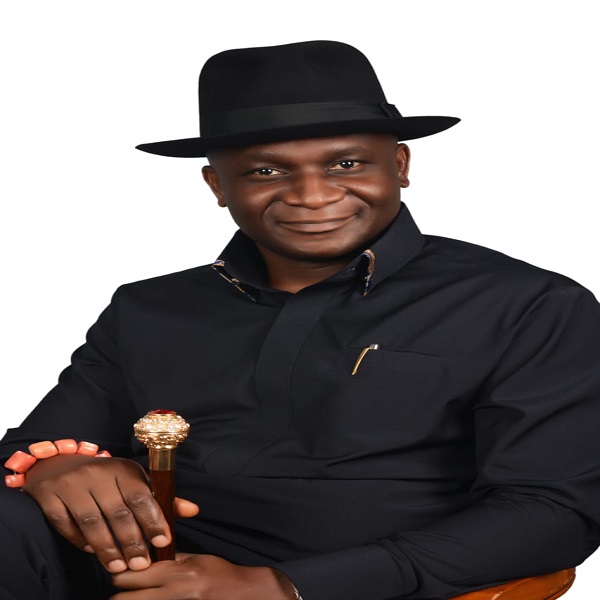






By Ifeatu Agbu
The rapid development of the Niger Delta region, which is the core mandate of the Niger Delta Development Commkisison, NDDC, got an impetus when the current Management, led by Dr Samuel Ogbuku, mounted the saddle at the Commission’s headquarters on January 5, 2023.
From day one, Ogbuku and his team were confronted with the daunting challenges of development in the Niger Delta region. However, the challenges spurred them to begin to look for new ways of achieving results. That inexorably led to the decision by the Commission to begin to do things differently.
In charting a new course, the Commission had to use new strategies, which emphasized transparency and accountability.
The new trajectory takes into account the vision of the NDDC, which is to create an enabling environment for the sustainable development of the Niger Delta region. The Management is also guided by the Commission’s mission, which is: “to facilitate the sustainable, even and rapid development of the Niger Delta, into a region that is socially stable, politically peaceful, economically prosperous and ecologically regenerative.”
The paradigm shifts at the NDDC did not come by chance. It came from good leadership. According to General Collin Powell, former Chairman of the US Joint Chief of Staff [1989-93] and the first African American to be appointed Secretary of State, you have to appoint the right calibre of people to deliver good results.
For him, “the organisation doesn’t really accomplish anything. Plans don’t accomplish anything either. Theories of management don’t matter. Endeavours succeed or fail because of the people involved. Only by attracting the best people will you accomplish great deeds.”
The Executive Management team in NDDC today appears to be hitting the right notes. This started with the solid foundation laid during a four-day Board and Management Retreat at the Ibom Icon Hotels and Golf Resort, Uyo, Akwa Ibom State. This set the tone for a new and re-invigorated journey.
Indeed, the management signaled that it would not be business as usual as it would enthrone transparency in its operations and reverse the resource-curse syndrome in the Niger Delta region.
At the end of the retreat, participants resolved that the NDDC should prioritize key sectors that would have huge impact on the standard of living of the people of the Niger Delta, namely: infrastructure, education, health and agriculture; the NDDC should pay particular attention to the security of lives and property and the protection of the poor and weak in the society; the NDDC should improve its youths and women empowerment programmes; the NDDC should consider implementing legacy projects that have the potential to benefit the people of the region, reduce poverty and improve the conditions of living of the people.
The stakeholders resolved to intensify efforts towards fast-tracking the development of the Niger Delta region. Along this line, they agreed to revisit and review the Niger Delta Regional Development Master Plan, which expired in 2020, to provide sustainable focus for the region.
They further resolved: “That the NDDC in its determination to take the region to greater heights shall engage in Public Private partnership arrangements with State Governments, International Oil Companies (IOCs) as well as International Donor Agencies with a view to executing mega projects for the region.”
To truly make a difference, the management adopted new methods to effectively drive sustainable development in the region. Thus, it decided to espouse the Public Private Partnership, PPP, model to provide alternative sources of funding for key development projects and programmes.
Consequently, a Management Committee on Public Private Partnership was constituted by the NDDC on January 18, 2023. The Commission observed that the only outstanding partnership it has entered into since inception was with respect to the construction of the Ogbia-Nembe Road. The 27-kilometre road, which connects 14 different communities of Bayelsa State, was constructed in partnership with Shell Petroleum Development Company, SPDC.
That multi-billion flagship project illustrates the kind of challenges confronting the Niger Delta. It cuts through the mangrove swamps with many bridges and 99 culverts.
To further explore the possibilities presented by a PPP model, the Commission organised a PPP summit in Lagos on April 25. At the Summit, with the theme: “Rewind to Rebirth,” the Commission signed a Memorandum of Understanding, MOU, with a United States-based firm, Atlanta Global Resources Inc., AGRI to build a railway network that will connect the nine states of the Niger Delta region.
The NDDC management had previously engaged the Nigerian National Petroleum Company, NNPC, Limited to propose a partnership for speedy development of the Niger Delta.
The Group Managing Director of NNPC Limited, Mr. Mele Kyari, agreed to co-fund some of NDDC’s projects tailored towards infrastructural development of the Niger Delta region. The partnership overture to the NNPC came on the heels of similar moves to get the hands of the Shell Petroleum Development Company of Nigeria Limited.
Again, the Commission engaged the members of the Oil Producers Trade Section, OPTS, of the Lagos Chamber of Commerce and Industry during their recent meeting in Lagos. According to Ogbuku, the management “recognizes that the OPTS, which embodies the IOCs, is a critical stakeholder of the NDDC, that is second only to the people of the region.”
Obviously, the NDDC alone cannot handle the task of developing the Niger Delta region. The Commission needs the support of all stakeholders to achieve the goal of developing the region. NDDC funds alone cannot fully develop the region. It needs the partnership of IOCs to achieve this.
Apparently, this prompted the management to step up the collaboration with various stakeholders, including the state governments to end the era of duplication of projects and promote harmony.
The NDDC boss noted that it was important to enhance collaboration between state governors, the NDDC, and other critical stakeholders to drive development through the monitoring and execution of regional projects.
Interestingly, steps are already being taken to strengthen the relationship between the Commission and the State Governments of the Niger Delta, to make them partners and not competitors.
These engagements have improved the visibility and broadened the scope of NDDC’s partnerships. In recognition of this fact, Ogbuku said that “stakeholders’ engagements were critical to the commission’s effectiveness. “We have, therefore, met with the civil society groups, traditional rulers and community leaders.
The traditional institution, being a highly revered group, was given due attention. Thus, the management visited the Olu of Warri, Ogiame Atuwatse III, in his palace in Warri, Delta State and the Amanyanabo of Okochiri, King Ateke Michael Tom in his palace in Okochiri, Okrika Local Government Area
To consolidate on the engagements, the management inaugurated a 2024 Budget Committee to interface with stakeholders in the budget process. The committee was charged with identifying the vision of the NDDC as an interventionist agency in order to prioritise the allocation of available resources.
Ogbuku assured that the Commission would produce a budget that would capture the present realities in the region, insisting that the document must have a clear vision. “This way, in implementing the it, there will be proper guidelines and it will not be distorted when it gets to the National Assembly. To achieve this, the NDDC must have a stakeholder’s conference to reach an agreement,” he said.
The NDDC boss maintained that the 2024 NDDC budget will be an inclusive budget that largely accommodates the interests of stakeholders in the Niger Delta region.
He said: “Stakeholders will have an opportunity to tell the NDDC the kind of projects they want in their areas of operations, so that they can be included in the budget. That is the plan for the NDDC budget for 2024. Henceforth, NDDC will capture every stakeholder in its budget; state governments, the IOCs, traditional institutions, everybody should be included in it. It will be an all-inclusive budget of the people of the Niger Delta.”
However, before coming up with the all-inclusive 2024 budget, the Commission had to deal with what the Managing Director described as a dysfunctional situation. “We met a situation where the Commission had no approved budget for 2021 and 2022.” Thankfully, the budgets for the two years, as well as that of 2023 have now been passed by the National Assembly.
With the budget in place, more projects and programmes will begin to roll out. In the light of this, the new concept developed by the Commission to work with the Niger Delta Chamber of Commerce in the training of youths and young entrepreneurs in the Niger Delta region, has every reason to succeed.
The plan, according to the NDDC boss, was to collaborate with the Niger Delta Chamber of Commerce to support Small and Medium Enterprises in the Niger Delta region.
He said: “For the new scheme to be successful, it will revolve around a Niger Delta Chamber of Commerce that will strengthen young entrepreneurs in the region. The goal is to stop a situation where youths will be at home and be receiving stipends. Hence, the Commission is changing its Youth Volunteer programme to Youth Internship Programme where youths will be attached to organisations for one year to learn skills.”
In the area of education, the NDDC under Ogbuku interacted with Vice Chancellors of four universities in the Niger Delta region and the dominant issue on the table was how to begin partnerships that will encourage research to help in finding solutions to some of the problems bedevilling the society.
Ogbuku said that partnering with universities in academic research will make it possible to produce life-saving vaccines, as well as finding lasting solutions for medical and social problems.
The Management also held a meeting with contractors working for the Commission and called for cooperation from them to resolve issues around the burgeoning debt profile of the Commission.
To find a solution, the NDDC leadership says it is willing to accept solutions that will lead to the reduction of the Commission’s debt profile.
As part of the measures taken to address the challenges posed by a huge debt profile, the Commission started reviewing all disilting contracts before payments were made.
Today, the NDDC has sufficiently watered the grounds for public, private partnerships to flourish alongside contributions from stakeholders to bring about economic prosperity, as well as ensure social and political stability in the Niger Delta region.
According to Ogbuku, the NDDC is assuming its rightful position as a vehicle to drive the socio-economic development of Nigeria’s oil-rich region.
Columinsts
The Mathematical Ozekhome





By Sam Otuonye
“Consequently, as regards this raging ruckus and scrimmage as to whether the 25% votes required by S.134 (2)(b) of the 1999 Constitution (as amended) is applicable to the FCT, Abuja, I have now decided to navigate further, some uncharted routes, by going mathematical to find X.” (Mike Ozekhome).
The legal silk, Prof. Mike Ozekhome (SAN), went beyond borders and treaded where many students, graduates, and even teachers, dread. Mathematics is in enemity with many students, particularly, Law and Humanities. Prior to the new University admission requirement of a credit in English Language and Mathematics across all courses, Mathematics was not a compulsory subject for applicants of Law and Humanities. If you were not good at mathematics you definitely did not have any bearing with Science and Business courses. You are automatically consigned to Arts and Law. But, a case of exception must be made here; as not all Law and Arts students were weaklings in mathematics. Few that knew mathematics still chose those courses for the love they had for them – Ozekhome may be one of those in this category.
According to Albert Einstein, “Pure mathematics is, in its way, the poetry of logical ideas.” Prof. Ozekhome brought pure mathematics to bear on the 25% FCT status dilemma, with lucid logical ideas that elevated reasonable man test and left no discerning person in doubt as to its nitty-gritty. He deployed the mathematical anatomy of BODMAS (Bracket, Of, Division, Multiplication, Addition and Subtraction) to plot the legal cum logical graph of his perspective on the subject matter. He was responding to a piece written by a Lawyer, Dr. Kayode Ajulo, on the raging controversial constitutional interpretation of the 25% votes requirement in the FCT, Abuja, in the February 25, 2023 Presidential Election.
While many legal luminaries have argued that FCT should not attract special attention as regards the 25% votes spread; for electoral convenience, I guess, Prof. Ozekhome insists otherwise. He argued: “Had the law makers intended that the Federal Capital Territory, Abuja, will be treated simply as a “State” and no more in section 134(2)(b) of the Constitution, they would have simply stopped there. There was no need to specifically add the new phrase “AND the Federal Capital Territory, Abuja”, as in section 134(2)(b). The Constitution would simply have provided for “two-thirds of all the States in the Federation”, and stopped there. But, it did not.” He supported his argument with diverse law reports and courts judgments.
This piece is not intended to join issues with the legal gurus and their arguments, as yours truly, is not a lawyer, but to highlight the assiduous essence of academic and professional excellence – studying to show yourself approved. The Holy Book asserted in 2 Timothy 2:15, “Study to show thyself approved unto God, a workman that needed not to be ashamed, rightly dividing the word of truth.” Apostle Paul was admonishing Timothy to employ diligence and accuracy in his work for God. Many professionals find it difficult to go beyond their normal peripheral professional routine. They are not in-touch with the axiomatic expressions of ‘out-of-the-box’, ‘going beyond borders’, ‘breaking limits’, etc. They have remained static, stationary and sedentary over their years of professional practice and career. Across all professions, there seems to be a striking redundancy in research and development. And this scenario erodes our value as a people, because you cannot develop beyond what you know.
In his expose, titled; “Finding the BODMAS X in the Mathematics of 25% of the FCT, Abuja”, Prof. Ozekhome said; “My deep research has just thrown up a judgment where the court was called upon to interpret and translate 1.00 to percentage. The Honourable Justice Nelson Ogbuanya of National Industrial Court, in resolving the mathematical legal question, held that “1.00 of an amount means one whole number and not a fraction; and when converted to percentage, it means 100% and not 1%.” This shows that he went beyond the ordinary to exhume evidential proofs. Daniel said in the Holy Book (Daniel 9:2)”In the first year of his reign (referring to Darius) I Daniel understood by books the number of the years, whereof the word of the LORD came to Jeremiah the prophet, that he would accomplish seventy years in desolations of Jerusalem.” Professional and academic excellence is: Study and Research. Simple!
When Ozekhome said, “Mercifully, I am very proud to announce to Ajulo and others that going by my well known antecedents which are self-evident (simply google me), I do not belong to such a lowly class of ego-masseurs. I am certainly not one of those cheap obsequious fawners, brown-nosers, or toady characters that hang around political merchants and buccaneers of corridors of power”; was he exhibiting pride, haughtiness and bravado? I do not think so. He is simply a man that has shown himself approved. And, who can lower his shoulders!
It takes resilience, consistency, hard work and doggedness to achieve outstanding feats. From the authority he asserted in his write-up, it does not appear to me that he hired a Number Expert to distil the figures and formular for him. He seems to be one of those students that mathematics did not intimidate. He wrote; “But, the variables must, nonetheless be ascertained before proceeding to conclude or ascribe a fixed figure in a given arithmetical equation. It is this inability to ascertain the variable figure that usually makes some students afraid of, and intimidated by, mathematics.”
He was indeed charitable by his choice of words, “… some students…” The fact is that many students hated mathematics perfectly well. Those days in Secondary School, mathematics class used to be scanty as most Arts students disappeared into other classes holding English, Literature, Government, etc. They used to evade mathematics class with swagger, oblivious of thefact that no knowledge is a waste. One of the definitions of ‘Education’ which interests me most is that which says that,Education is knowing bits of everything but more of one to earn a living. Mathematics is central to every profession and career no matter how little. Those in the Arts (like Ozekhome) that refused to run away from it but learned a bit of it are harvesting and harnessing the benefits today. They are showing themselves approved of their workmanship more than most of their colleagues. And there is nothing anybody can do about it.
Nigeria is known for brandishing certificates, both genuine, fake and bought, even as our academic value is continually being eroded, particularly in the public schools –primary, secondary and tertiary. The public sector places certificates above competence and capacity. That does not suggest that certificates are to be discouraged, but it must add corresponding competenceand capacity value. Most of the job recruitments in government circles are done without proper interviews. They do not constitute strong interview panels and Human Resources Consultants to screen the applicants. They draw the recruits/employees from the legislative, executive, judiciary, political appointees, ethnic, and nepotistic lists. Sometimes, the jobs are sold for personal gains or as official revenue generation.So many civil and public servants do not even understand the fundamentals of the jobs they are doing. Even, some of the applicants (who are graduates) cannot write the application letter for the job they seek to do. So sad!
Our dear country, Nigeria, must shift away from this odious narrative and embrace the global best practices in education and skill acquisition. Research and Development (R&D) must be given a place of priority in our Education System, with cutting-edge facilities and technological infrastructure. And, for the Constitutional legal legend; Chief, Prof. Mike A.A. Ozekhome, SAN, CON, OFR, FCIArb, LLM, PhD, LLD, D.Litt, I join the knowledge-seeking people of Nigeria and the world over, to salute your erudition.
• Otuonye, writes from Enugu samotuonye22@gmail.com
-

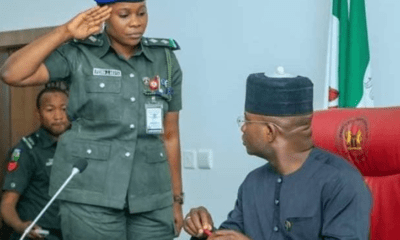

 News2 days ago
News2 days agoWhy Force Headquarters ordered detention of ex-Gov Yahaya Bello’s ADC
-

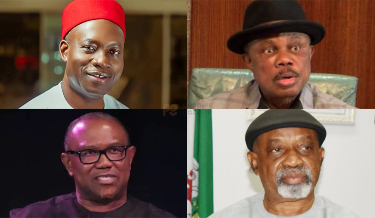

 News22 hours ago
News22 hours agoActivist drags Soludo, Ngige, Obi, Obiano to court over alleged use of undemocratic officials to run LGs
-



 News18 hours ago
News18 hours agoGunmen kill Babcock University professor, abduct 2 others
-

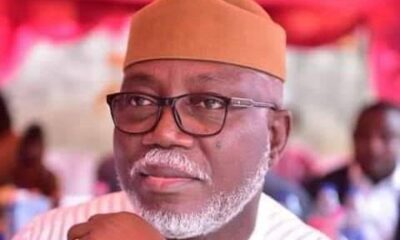

 News1 day ago
News1 day agoLucky Aiyedatiwa wins Ondo APC governorship ticket
-

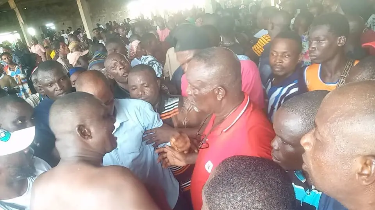

 News2 days ago
News2 days agoOndo APC Primary: Health Commissioner Ajaka beaten up for allegedly hiding result sheets
-

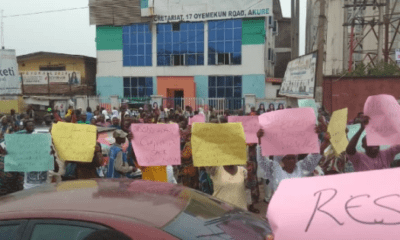

 News1 day ago
News1 day agoProtest breaks out in Ondo over APC Gov Primary
-



 News16 hours ago
News16 hours agoFather, son, neighbour die trying to retrieve phone from pit latrine
-



 News2 days ago
News2 days agoPoliceman kills bizman in Abia over bribe








